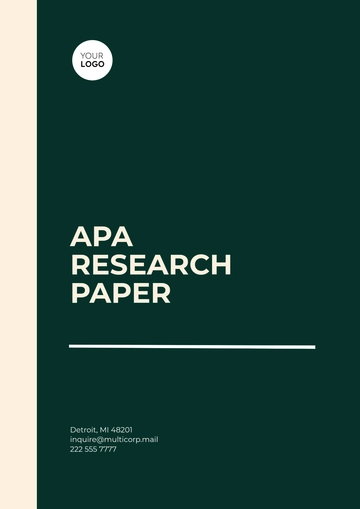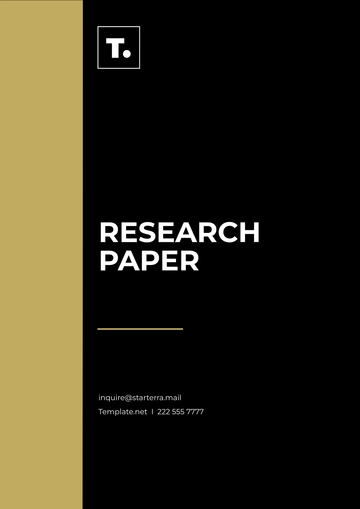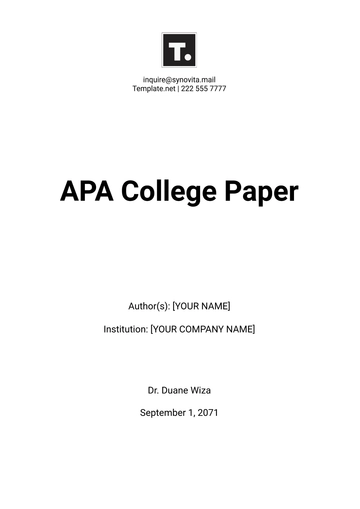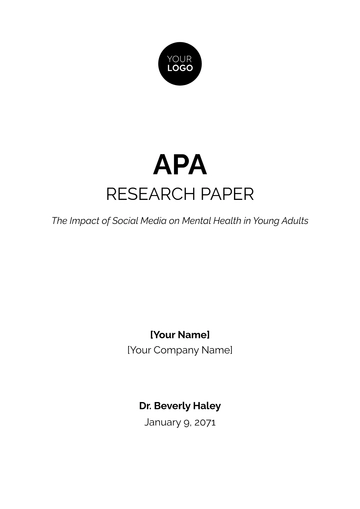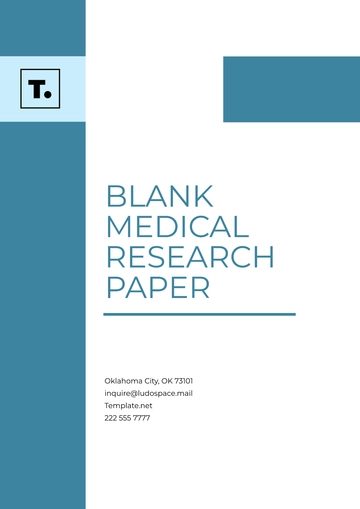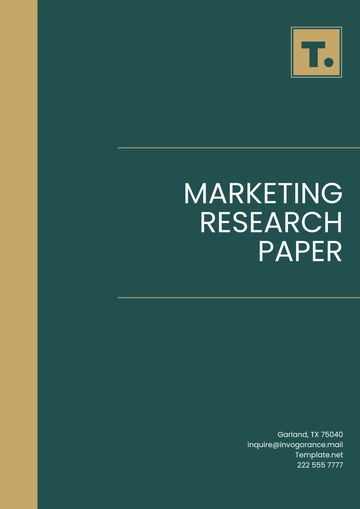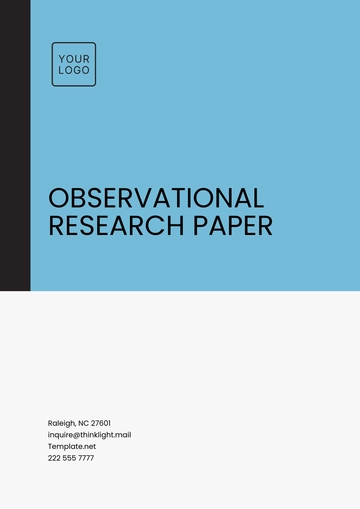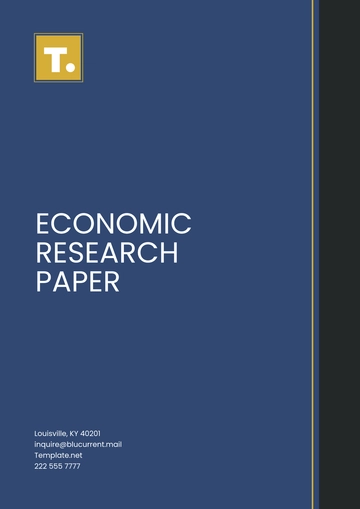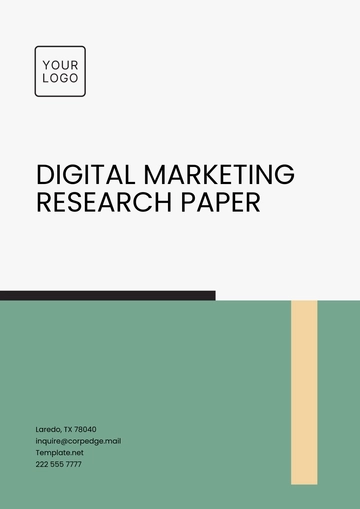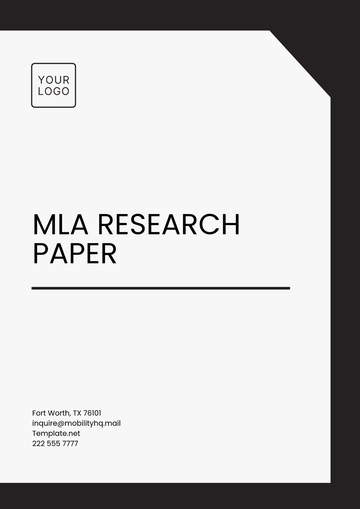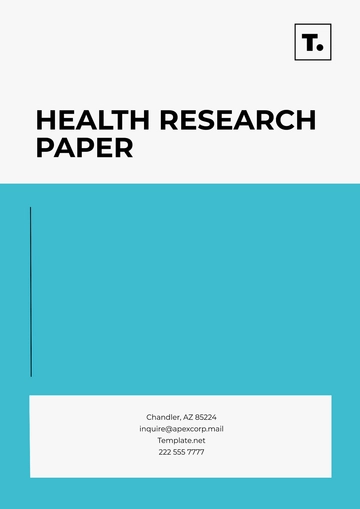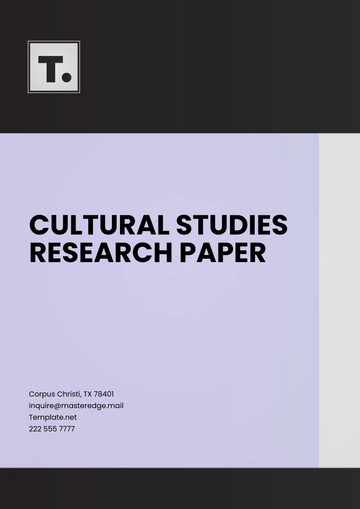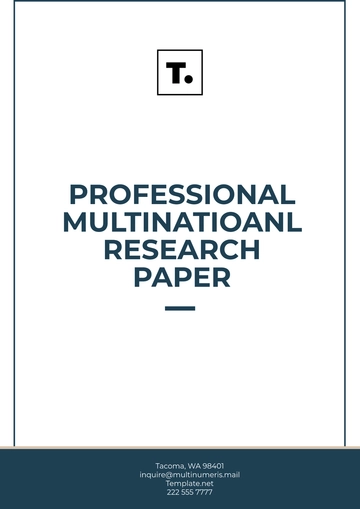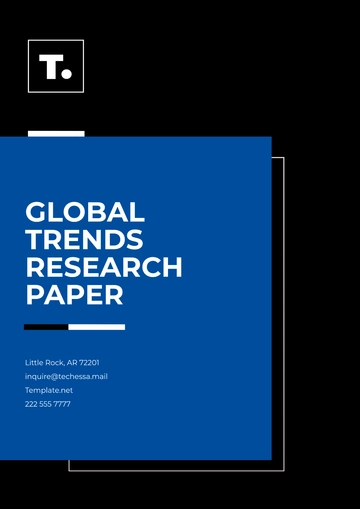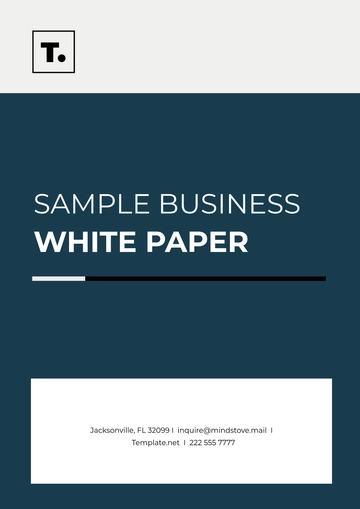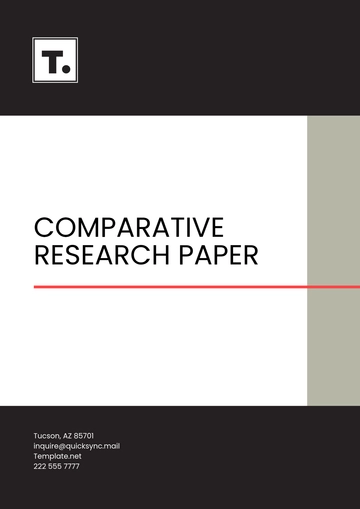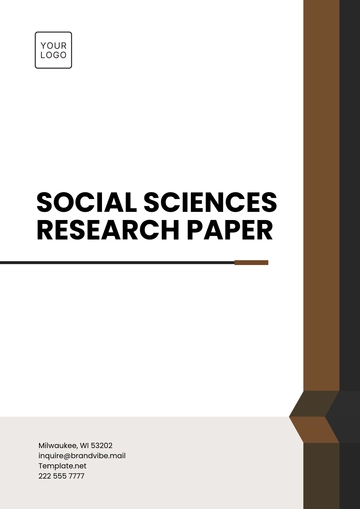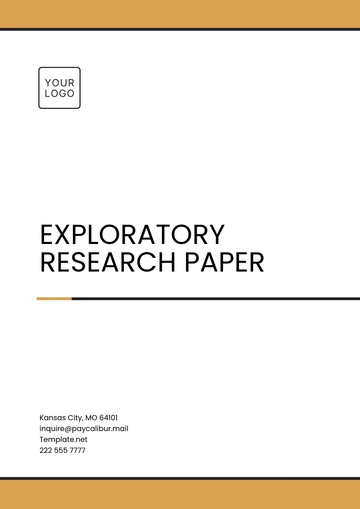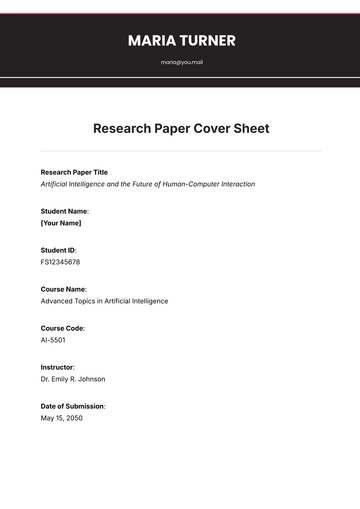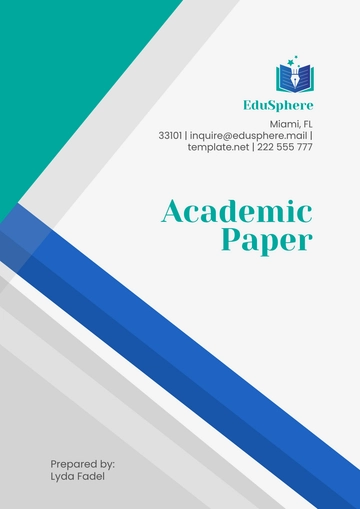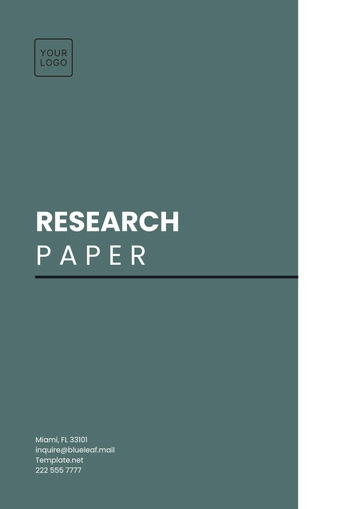Free Printable APA Research Paper
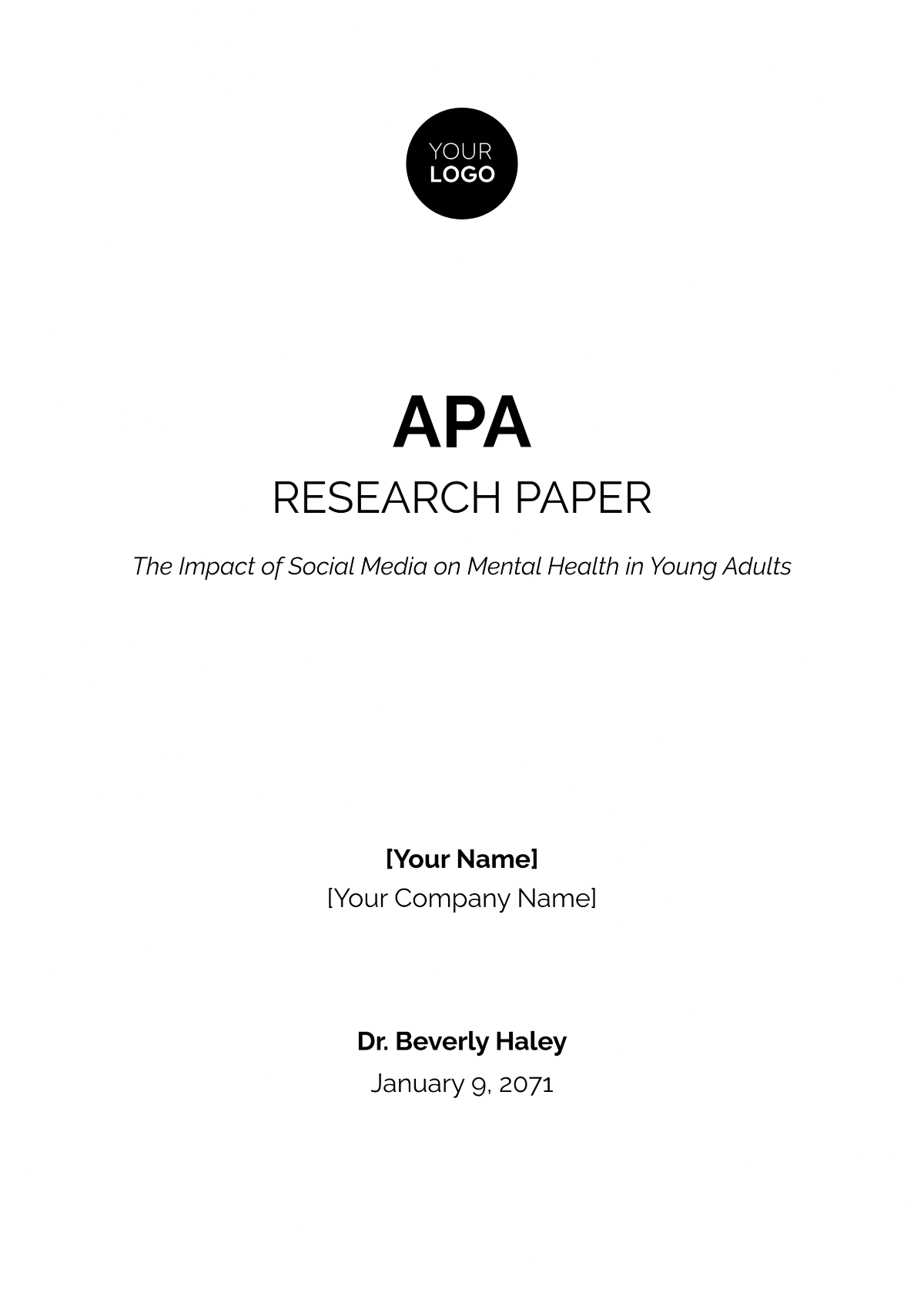
Prepared by: [YOUR NAME]
Abstract
This study investigates the effects of social media use on mental health in young adults. Specifically, it explores how the frequency of social media engagement influences levels of anxiety, depression, and overall well-being. A total of 250 participants, aged 18-25, were surveyed about their social media habits and mental health. The findings suggest that excessive social media use is positively correlated with higher levels of anxiety and depression, particularly among individuals who spend more than 4 hours per day on platforms such as Instagram and Facebook. The study concludes by discussing potential implications for mental health interventions and the importance of managing social media use.
I. Introduction
The rise of social media platforms such as Instagram, Facebook, and TikTok has dramatically changed how young adults communicate, interact, and perceive themselves. While these platforms offer opportunities for social connection and self-expression, research suggests they may also contribute to mental health issues. Previous studies have highlighted the link between excessive social media use and feelings of anxiety and depression. This study seeks to further explore how the amount of time spent on social media affects mental health outcomes in young adults, with a focus on Instagram and Facebook usage.
II. Literature Review
Numerous studies have examined the relationship between social media use and mental health. According to Smith (2070), excessive social media engagement is associated with increased feelings of loneliness, anxiety, and depression. Conversely, Johnson and Taylor (2069) suggest that social media can also foster positive mental health by providing a sense of community and emotional support, particularly for individuals who face social isolation. However, these findings remain inconsistent, with some studies indicating that the impact of social media on mental health varies based on the type of content consumed and the user's perception of online interactions.
Social media platforms have also been found to shape body image concerns among young adults. A study by Williams et al. (2068) revealed that Instagram, in particular, is linked to higher rates of body dissatisfaction due to the prevalence of edited and idealized images. These findings point to the need for further research into how specific social media platforms contribute to mental health outcomes.
III. Methodology
This study used a quantitative research design to examine the relationship between social media usage and mental health. A total of 250 participants, aged 18-25, were recruited through online advertisements on social media platforms. Participants completed a 15-minute online survey that assessed their social media usage, including the number of hours spent per day on Instagram, Facebook, and TikTok, as well as their perceived levels of anxiety and depression, measured using the Generalized Anxiety Disorder Scale (GAD-7) and the Patient Health Questionnaire (PHQ-9).
Data analysis included descriptive statistics to assess the average time spent on social media and the average anxiety and depression scores. Pearson correlation tests were conducted to determine the strength of the relationships between social media usage and mental health outcomes.
IV. Results
The results of the study revealed that participants who spent more than 4 hours per day on social media platforms, particularly Instagram, reported significantly higher levels of anxiety (M = 15.2, SD = 4.1) and depression (M = 14.8, SD = 3.7) compared to those who spent less than 2 hours daily. The correlation between Instagram use and anxiety was found to be moderate but significant (r = .43, p < .01), while the correlation between Instagram use and depression was also moderate (r = .40, p < .01).
No significant correlation was found between Facebook usage and mental health outcomes (r = -.02, p = .75), suggesting that the type of platform may influence the impact on mental health. Additionally, participants who engaged in TikTok for more than 3 hours daily reported a slight increase in anxiety levels, but this finding was not statistically significant (r = .15, p = .23).
V. Discussion
The findings of this study suggest that excessive use of social media, particularly Instagram, is associated with higher levels of anxiety and depression in young adults. These results support previous research by Smith (2070) and Williams et al. (2068), who found a similar relationship between social media use and mental health issues. The lack of a significant correlation with Facebook and the minimal effect of TikTok use on mental health outcomes may indicate that the type of content consumed on different platforms plays a critical role in shaping psychological well-being.
The study’s limitations include the reliance on self-reported data, which may be subject to bias. Additionally, the cross-sectional nature of the study prevents any causal inferences from being made. Future research should explore the specific types of content consumed on social media and examine the long-term effects of social media usage on mental health.
VI. Conclusion
This study highlights the potential mental health risks associated with excessive social media use, particularly Instagram, among young adults. The findings suggest that interventions aimed at reducing social media usage or promoting healthier online habits could help mitigate the negative effects on mental health. Given the increasing reliance on social media for communication and socialization, it is essential to explore strategies for managing online engagement and promoting positive mental health in the digital age.
VII. References
Johnson, M., & Taylor, K. (2069). Social media and mental well-being: Exploring the positive effects. Social Science Journal, 34(4), 234-245.
Smith, J. (2070). The impact of social media on mental health: A systematic review. Journal of Psychology, 12(3), 100-115. https://doi.org/10.1007/jps.2070.0045
Williams, L., Brown, S., & White, T. (2068). Body image concerns and social media use in young adults. Journal of Health Psychology, 29(2), 150-160.
VIII. Appendices
Appendix A: Social Media Usage Survey
Appendix B: Anxiety and Depression Scales
- 100% Customizable, free editor
- Access 1 Million+ Templates, photo’s & graphics
- Download or share as a template
- Click and replace photos, graphics, text, backgrounds
- Resize, crop, AI write & more
- Access advanced editor
Streamline your research writing with Template.net’s Printable APA Research Paper Template. Fully customizable and editable in our AI Editor Tool, this template provides a structured format for organizing citations, references, and content. Perfect for students and researchers, this professional tool ensures adherence to APA guidelines and delivers polished, high-quality papers.
